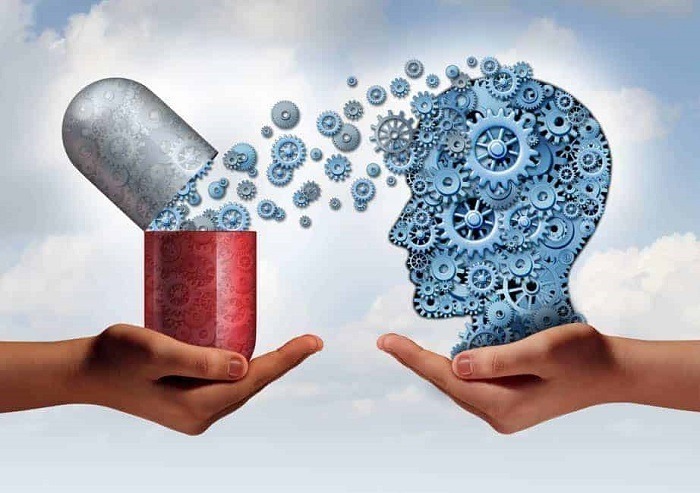Study: Antidepressant vortioxetine combined with cognitive training may help delay cognitive decline

Can Pharmacological Augmentation of Cognitive Training Remediate Age-Related Cognitive Decline? (The American Journal of Psychiatry):
A gradual decline of cognitive function and concurrent loss of brain volume is an expected process even in healthy aging. What if, however, this process could be delayed, reversed, or even prevented? This question has become increasingly relevant as the average expected lifespan rises. Indeed, the number of Americans over age 65 is expected to more than double from 40 million in 2010 to 89 million in 2050.
One method being actively researched for preserving cognitive function in aging is cognitive training. Briefly, this approach leverages three decades of progress in cognitive neuroscience, where functional MRI (fMRI) and other methods have mapped out the discrete neural circuits engaged during specific cognitive processes that are elicited by well-established experimental cognitive tasks…
In this issue of the Journal, Lenze and colleagues examine the ability of the antidepressant vortioxetine to augment the cognitive effects of cognitive training in adults age 65 or older … Based on these earlier findings, Lenze et al. hypothesized that combining the drug with cognitive training would amplify the procognitive effects of training as well as show benefits on everyday cognitive tasks (“real-world” behavior)…The results of the study suggest that vortioxetine may have a synergistic or additive effect when combined with cognitive training to improve cognitive performance in older adults who are experiencing nonpathological age-related cognitive decline. The study represents the first demonstration that a drug may enhance and accelerate the effects of cognitive training in this population.
The Study
Augmenting Computerized Cognitive Training With Vortioxetine for Age-Related Cognitive Decline: A Randomized Controlled Trial (The American Journal of Psychiatry). From the abstract:
- Methods: After a 2‑week lead-in period of cognitive training, 100 participants were randomly assigned to receive either vortioxetine or placebo in addition to cognitive training for 26 weeks. The primary outcome measure was global cognitive performance, assessed by the NIH Toolbox Cognition Battery Fluid Cognition Composite. The secondary outcome measure was functional cognition, assessed by the UCSD Performance-Based Skills Assessment. All participants received motivational messaging and support from study staff to maximize adherence to the training.
- Results: Participants who received vortioxetine with cognitive training showed a greater increase in global cognitive performance compared with those who received placebo with cognitive training. This separation was significant at week 12 but not at other assessment time points. Both groups showed improvement in the secondary outcome measure of functional cognition, with no significant difference between groups.
- Conclusions: Vortioxetine may be beneficial for age-related cognitive decline when combined with cognitive training. These findings provide new treatment directions for combating cognitive decline in older adults.
The Study in Context:
- Study finds combined pharma + non-pharma treatment most beneficial to help youth with ADHD address long-term academic difficulties
- Solving the Brain Fitness Puzzle Is the Key to Self-Empowered Aging
- Ten neurotechnologies about to transform brain enhancement & health
- Can brain training work? Yes, if it meets these 5 conditions
- What are cognitive abilities and how to boost them?


